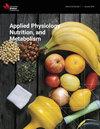住院病人营养风险和营养不良的普遍性:单日筛查的回顾性横断面研究
IF 2
4区 医学
Q3 NUTRITION & DIETETICS
引用次数: 0
摘要
应用生理学、营养学和新陈代谢》(Applied Physiology, Nutrition, and Metabolism, Ahead of Print)。 医院营养不良仍然是一个重大的公共卫生问题,在发展中国家尤其如此。全球营养不良领导倡议(GLIM)提出了统一标准,以规范营养不良诊断。本研究旨在分别使用营养风险筛查(NRS)-2002 筛查工具和 GLIM 标准,回顾性地确定住院患者中营养风险和营养不良诊断的发生率。我们根据 2021 年一个中心的住院患者营养记录进行了一项回顾性横断面研究。记录中的营养数据包括医疗诊断、性别、住院时间、年龄、体重、身高、体重指数、体重减轻、小腿围和中上臂围。营养风险和营养不良采用 NRS-2002 和 GLIM 标准进行评估。通过卡帕检验进一步评估其一致性。研究包括 616 份患者记录;男性占 52.3%(n = 322)。根据 NRS-2002 标准,营养风险发生率为 69.5%(n = 428)。87.8%的患者(n = 374)的营养风险和营养不良诊断是根据 GLIM 标准进行的。通过卡帕检验进一步评估了两者的一致性。Ws.工具显示出很强的一致性(κ= 0.732)。除身高外,所有人体测量数据在中度和重度营养不良患者之间均存在显著差异(p < 0.05)。我们的研究结果表明,在墨西哥的这组住院病人中,营养不良的发病率很高。根据 GLIM 标准,NRS-2002 与营养不良的诊断显示出良好的一致性,可被视为营养不良直接两步法的一部分;但是,还需要进一步的研究。本文章由计算机程序翻译,如有差异,请以英文原文为准。
Prevalence of nutritional risk and malnutrition in hospitalized patients: a retrospective, cross-sectional study of single-day screening
Applied Physiology, Nutrition, and Metabolism, Ahead of Print.
Hospital malnutrition remains a significant public health issue, particularly in developing countries. The Global Leadership Initiative on Malnutrition (GLIM) proposed homogenizing criteria to standardize malnutrition diagnosis. This study aimed to retrospectively determine the prevalence of nutritional risk and malnutrition diagnoses among hospitalized patients using the Nutritional Risk Screening (NRS)-2002 screening instrument and the GLIM criteria, respectively. We conducted a retrospective, cross-sectional study from nutritional records of patients hospitalized in a single centre 2021. Nutrition data from records included medical diagnosis, gender, length of stay, age, weight, height, body mass index, weight loss, calf circumference, and middle upper arm circumference. Nutritional risk and malnutrition were evaluated using NRS-2002 and GLIM criteria. Its concordance was further evaluated by using a Kappa test. The study included 616 records of patients; 52.3% (n = 322) of the population were male. The prevalence of nutritional risk, according to NRS-2002, was 69.5% (n = 428). Nutritional risk as well as malnutrition diagnosis according to GLIM criteria was observed in 87.8% (n = 374) of patienttritional risk and malnutrition were evaluated using NRS-2002 and GLIM criteria. Its concordance was further evaluated by using a Kappa test. Ws. Tools showed a strong concordance (κ= 0.732). All anthropometric data, except for height, were found to be significantly different between patients with moderate and severe malnutrition (p < 0.05). Our findings highlight a high prevalence of malnutrition in this group of hospitalized patients in Mexico. NRS-2002 demonstrated good agreement with the diagnosis of malnutrition according to GLIM criteria and could be considered part of the straightforward two-step approach for malnutrition; however, further studies are needed.
Hospital malnutrition remains a significant public health issue, particularly in developing countries. The Global Leadership Initiative on Malnutrition (GLIM) proposed homogenizing criteria to standardize malnutrition diagnosis. This study aimed to retrospectively determine the prevalence of nutritional risk and malnutrition diagnoses among hospitalized patients using the Nutritional Risk Screening (NRS)-2002 screening instrument and the GLIM criteria, respectively. We conducted a retrospective, cross-sectional study from nutritional records of patients hospitalized in a single centre 2021. Nutrition data from records included medical diagnosis, gender, length of stay, age, weight, height, body mass index, weight loss, calf circumference, and middle upper arm circumference. Nutritional risk and malnutrition were evaluated using NRS-2002 and GLIM criteria. Its concordance was further evaluated by using a Kappa test. The study included 616 records of patients; 52.3% (n = 322) of the population were male. The prevalence of nutritional risk, according to NRS-2002, was 69.5% (n = 428). Nutritional risk as well as malnutrition diagnosis according to GLIM criteria was observed in 87.8% (n = 374) of patienttritional risk and malnutrition were evaluated using NRS-2002 and GLIM criteria. Its concordance was further evaluated by using a Kappa test. Ws. Tools showed a strong concordance (κ= 0.732). All anthropometric data, except for height, were found to be significantly different between patients with moderate and severe malnutrition (p < 0.05). Our findings highlight a high prevalence of malnutrition in this group of hospitalized patients in Mexico. NRS-2002 demonstrated good agreement with the diagnosis of malnutrition according to GLIM criteria and could be considered part of the straightforward two-step approach for malnutrition; however, further studies are needed.
求助全文
通过发布文献求助,成功后即可免费获取论文全文。
去求助
来源期刊
CiteScore
6.50
自引率
2.90%
发文量
113
审稿时长
4-8 weeks
期刊介绍:
Applied Physiology, Nutrition, and Metabolism publishes original research articles, reviews, and commentaries, focussing on the application of physiology, nutrition, and metabolism to the study of human health, physical activity, and fitness. The published research, reviews, and symposia will be of interest to exercise physiologists, physical fitness and exercise rehabilitation specialists, public health and health care professionals, as well as basic and applied physiologists, nutritionists, and biochemists.

 求助内容:
求助内容: 应助结果提醒方式:
应助结果提醒方式:


